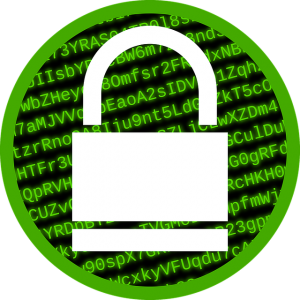 Earlier this year, we discussed how ransomware could very well be your biggest threat online this year. As a recap, ransomware is software maliciously installed on a computer or server that effectively encrypts all files, and subsequently demands payment (generally via digital currency like Bitcoin) to unlock those files to make them accessible again.
Earlier this year, we discussed how ransomware could very well be your biggest threat online this year. As a recap, ransomware is software maliciously installed on a computer or server that effectively encrypts all files, and subsequently demands payment (generally via digital currency like Bitcoin) to unlock those files to make them accessible again.
There are all sorts of varieties of ransomware, which can been introduced to a system by clicking a suspicious link or attachment, or by other means, such as visiting a compromised website.
Despite the fact that threats of ransomware have been high publicized, scores of victims are still giving in to cyber criminals by making ransom payments to get their files back. The Federal Bureau of Investigation (FBI) has taken note, and it enlisting the help of the general public in attempts to bring this highly-lucrative practice to an end.
In a public service announcement published last week, the FBI writes:
The FBI is urging victims to report ransomware incidents regardless of the outcome. Victim reporting provides law enforcement with a greater understanding of the threat, provides justification for ransomware investigations, and contributes relevant information to ongoing ransomware cases. Knowing more about victims and their experiences with ransomware will help the FBI to determine who is behind the attacks and how they are identifying or targeting victims.
The Bureau notes that victims should report this following bits of information via their Internet Crime Complaint Center:
- Date of infection.
- Ransomware variant.
- Victim company information.
- How the infection occurred.
- Requested ransom amount.
- Actor’s Bitcoin wallet address
- Ransom amount paid.
- Overall losses associated with the infection.
- Victim impact statement.
Perhaps the best way to go about a ransomware infection, however, is to ensure it never happens in the first place.
While you might not be able to prevent visiting a compromised website, what you can do is ensure you have frequent backups of your computer/server system. In the event your system is infected with ransomware, no problem, just restore a previous backup.
And with all-in-one backup software such as our own MegaBackup, there is really no excuse for not having a backup solution in place – especially when the entire process can be automated. MegaBackup is suitable for home and business use, from desktops and laptops, to servers.
Cloud-based email offered by Meganet is also a great way to prevent ransomware from impacting you. Since email files are stored in the cloud, they cannot be held for ransom in the event your computer becomes compromised.
Don’t put yourself in the awkward position of dealing with cybercriminals. Get an affordable defense in place.
Need more information or ready to get started? Reach out to our sales team at sales@meganet.net or by calling 508-646-0030.
